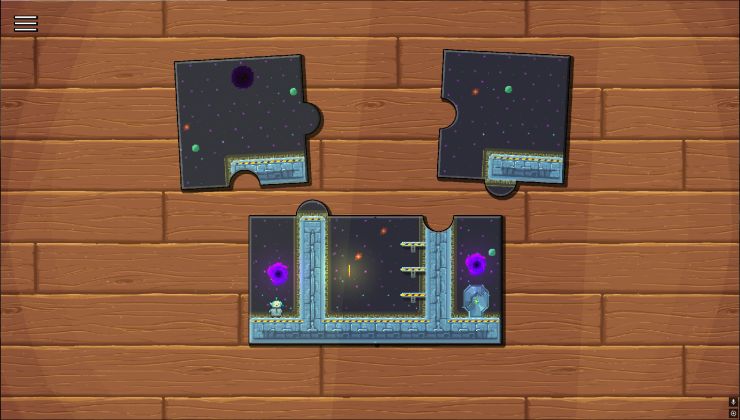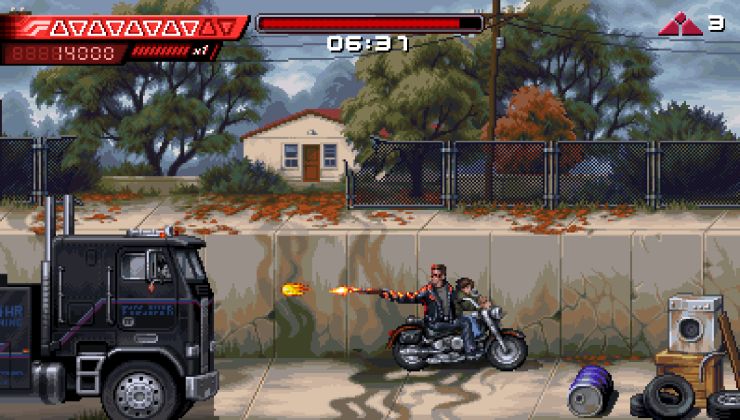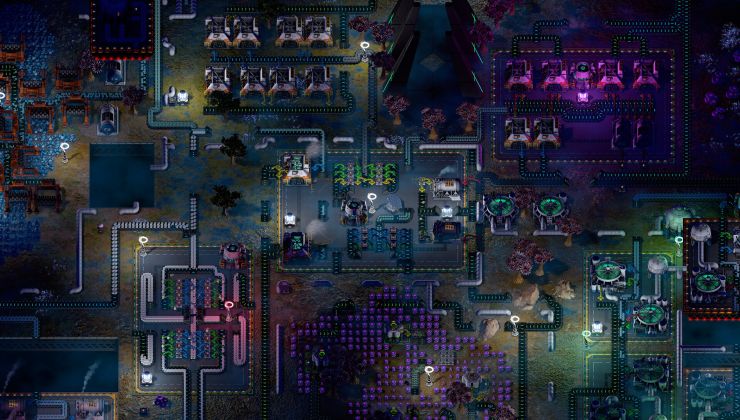I love my Steam Deck, as any regular reader will know. It's my favourite gaming device but it could always be better right? And with competition hot (hi Nintendo), I hope Valve have more plans.
Now, I'm not dumb enough to think that the Steam Deck is in actual competition with the Nintendo Switch. That's just not a reality. The Switch has sold over 140 million units and continues to sell millions, it's in stores everywhere, people buy it for their children, for themselves and yeah — you get the idea. But still, for us PC fans the Steam Deck (and specifically us Linux lot) and other PC handhelds are simply awesome.
We all knew a Nintendo Switch 2 would happen, there just hadn't been any real proper confirmation, until now. Writing on social media, Nintendo president Shuntaro Furukawa posted on May 7th:
This is Furukawa, President of Nintendo. We will make an announcement about the successor to Nintendo Switch within this fiscal year. It will have been over nine years since we announced the existence of Nintendo Switch back in March 2015. We will be holding a Nintendo Direct this June regarding the Nintendo Switch software lineup for the latter half of 2024, but please be aware that there will be no mention of the Nintendo Switch successor during that presentation.
So sometime before the end of March 2025, the Nintendo Switch 2 will be revealed.
That leads me to think about the future. The Switch 2 will no doubt sell by the truck-loads once again. So let's just set that aside because it's a different market overall. Still, we have other handheld PC gaming vendors appearing often like the ROG Ally, Legion GO, MSI Claw, various devices from OneXPlayer, GPD, Ayaneo and more on the way so there's really a lot of these devices now.
To me, handheld gaming like this is the future. You may think I am heavily biased, and in many ways I am (obviously, I run this website) but I'm a tech-fan. I have a PlayStation, a Switch, an Xbox and more. But it feels increasingly weird to have a dedicated solid box permanently attached to a single TV. I actually don't like that at all now. Being able to take a much smaller device with you to play anywhere, and additionally have the ability to hook it up to a TV whenever you want just feels so much better. Nintendo definitely had the right idea, as did Valve.
We've seen in the past that Valve have said pretty clearly they had plans to keep going, and with the Steam Deck still continuing to sell constantly, it would be crazy if Valve didn't produce a Steam Deck 2. Even though you could argue the Steam Deck OLED is such a ridiculous improvement it might as well be a Steam Deck 2, I want more. A lot more.
The current shell design is just fine, I don't think Valve really need to do many changes there at all. The OLED design gave us enough improvements inside to various parts so thinking on what they should add in for the big number 2: a newer generation AMD APU to bring performance up, with a slightly higher resolution screen and I honestly think I would be ridiculously happy. It doesn't take much. Performance being the biggest one and with more new AMD chips on the way, give it another year for the generation after that (or their refresh) and we could be looking at a really fun performance boost.
So, let's say a Steam Deck 2 announcement in late 2026. Make it so, Valve.
What do you think? And what do you now want from a Steam Deck 2?
The current design of the shell / controller / etc is perfect for me. Just needs a faster cpu/gpu and for the screen to keep getting better over the years.
* Very slightly smaller/lighter/thinner
* Another 30% battery life bump
* 6-8 cores (no need to go above 8) that's very power optimized.
* Stick to the Radeon iGPU platform (as they have lots of software for it) so probably an RDNA4 20CU setup
* Bump to 256-bit RAM (or 192bit + some kind of big cache)
* Reduce the power consumption of uncore significantly, so online idle power can be brought down to the 1W range.
* Screen can stay the same, maybe eDP with VFR.
Basically, incremental improvements in form factor, focus more on power efficiency and a wide-and-slow CPU/GPU with ample compute and bandwidth so it doesn't starve itself like e.g. Phoenix APU's do.
The benefits of a standardized hardware target are negated by too frequent changes. Being able to test for one configuration is important for devs, it is often cited as a benefit of consoles over PC, and the Deck was dealing with that nicely while also being a PC.
Sure every year we get new hardware (which is a problem: e-waste is getting out of hand, short-lived devices use more energy being manufactured than through their entire lifetime, we rely more and more on minerals that are environmentally and socially costly to extract, etc etc). The increases in performance are often marginal or come at a cost, such as lower battery life or bigger devices (phones have been steadily creeping in size, to the dismay of many people, to keep up with an artificial improvement in specs, and GPUs are ridiculously large). Costs of game development have also been increasing unreasonably. Following these frequent updates is a bad thing.
And honestly, it pisses me off immensely when people make new generations of a product that hasn't even made it into the whole world yet. Finish releasing it in all the other countries before thinking of replacing it.
The 8 year cadence of the switch is too long as it has definitely been losing developer interest in the last two years as it's too weak to support on multiplatform releases anymore.
Quoting: grigiWhat do you think is a good cadence for updates? 3 years? 4 years? more?It's far too long, the Switch was low-powered even at release and it has missed a fair amount of games as it's just not strong enough.
The 8 year cadence of the switch is too long as it has definitely been losing developer interest in the last two years as it's too weak to support on multiplatform releases anymore.
For the Deck 2, my suggestion there about announcing it late 2026, would mean a release in 2027. Making it about 5 years between Deck and Deck 2 which for a PC platform seems pretty darn reasonable to me, considering the Deck struggles a lot with newer games right now.
Quoting: Liam DaweHmm, but the gamble Valve took was minimised with Deck 1. I'm sure I read that they had to reserve a minimum of 2 million chips for a custom design, and that they were thinking there's no way we'll sell that many.Quoting: grigiWhat do you think is a good cadence for updates? 3 years? 4 years? more?It's far too long, the Switch was low-powered even at release and it has missed a fair amount of games as it's just not strong enough.
The 8 year cadence of the switch is too long as it has definitely been losing developer interest in the last two years as it's too weak to support on multiplatform releases anymore.
For the Deck 2, my suggestion there about announcing it late 2026, would mean a release in 2027. Making it about 5 years between Deck and Deck 2 which for a PC platform seems pretty darn reasonable to me, considering the Deck struggles a lot with newer games right now.
Likely that's why the Deck OLED came out so soon after as they ran out of their initial order and it was a similar cost to do an updated node.
Now with Deck 2 they can push a little harder if they aim to sell, e.g. 10 million of em. So instead of tacking on last-gen CPU cores to a current gen GPU, they could get more modern things.
So I'm thinking that the first generation cadence would make sense to be a little shorter, as there are already games where the Deck struggles.
So would be happy if they announce the next version end of next year for 2026 release.
And what do you now want from a Steam Deck 2?A lot of the failings of the first-gen Deck got fixed with the OLED - the bezels got reduced, the battery life got improved, L1/R1 got less janky, the not-great display got swapped, the too-small 64 GB SKU got dropped, and the power LED has status colours.
There are still remaining improvements that can be made, though, so I'd like
- enough performance to run 2026-current and near-future AAA games at native resolution at 30 fps or higher
- OLED for every SKU
- stacked cache on the APU for more effective bandwidth
- any magical new-fangled battery tech that lets you fit more battery inside.
- additional intake vents along the bottom edge so that neither "propped in lap" nor "balanced on a sofa arm" will completely starve the cooling of air
- a Kensington slot. If the Deck becomes the de facto machine to leave at trade shows or hand out to focus groups, then "the machine that my in-development game absolutely has to run well on" is the Deck
- further improved L1/R1 buttons, and potentially make those analogue
- have some means, either tactile or backlight, to find the supplemental buttons.
- since both "game developers don't test below 1080p" and "this game is only Playable rather than Verified because the text is too small" are both things, a size bump to 8½-9 inches and a resolution bump to 1920×1200 if they can get that to meet the performance requirements
- a kickstand, or a prop solution that comes in the box, since external controller support is already good.
- sticky strips instead of glue, and maintaining or improving the deconstruction process
Whether it will need a RAM bump and a storage bump is hard to say right now, but it seems like it might. Streaming-to-Deck and shopping-on-Deck need work already, but they'll want to fix up both of those before a Deck 2 is released.
Last edited by CatKiller on 8 May 2024 at 2:58 pm UTC
Quoting: eldakingIt is far too early to release a Deck 2Why? Desktop generation of CPUs and GPUs refresh around once per 2 years. Same happens with mobile phones. Why can't gaming handhelds refresh that way too?
Quoting: eldakinghe benefits of a standardized hardware target are negated by too frequent changesThat somehow doesn't bother desktop gaming.
Waste can be an issue, but you aren't forced to buy new hardware every time there is a generation update.
Last edited by Shmerl on 8 May 2024 at 3:02 pm UTC
Quoting: pleasereadthemanualIf they could release it in Australia first...Oops, yes, that's something that I forgot to put on my list: worldwide availability.
Quoting: ShmerlDepends on who Valve want to target for the Steam Deck. Is it PC gamers that already going to have a Desktop, and the Deck just turns their gaming experience into a portable one? Or are they trying to target the console gaming market, where people would only play their gaming library on the Deck, whether Docked or not? If the latter group, it should realistically have a similar cadence of release as the console market does.Quoting: eldakingIt is far too early to release a Deck 2Why? Desktop generation of CPUs and GPUs refresh around once per 2 years. Same happens with mobile phones. Why can't gaming handhelds refresh that way too?
Quoting: eldakinghe benefits of a standardized hardware target are negated by too frequent changesThat somehow doesn't bother desktop gaming.
Waste can be an issue, but you aren't forced to buy new hardware every time there is a generation update.
There definitely is a difference in thought processes between the people who game on computers, and those who use gaming consoles. I've always been more of a computer gamer, even though I do own a few consoles, I don't use them very often (sadly the Deck included). Most of the time the games themselves don't really need or use the latest GPU features anyhow. A portable computer, like the Steam Deck, shouldn't really be expected to run the latest Unreal Engine 5 games that are coming out soon, or some of the AAA gaming that is out there. Then again, with a large majority of the AAA games becoming stupidly greedy (Hi, Ubisoft), it's probably a great thing overall that we can just give them the finger as they won't run very well on a portable system anyhow.
As for Nintendo releasing a new console? Who knows if they'll even do a Switch 2, they usually like to change up the gaming industry with something weird/unique. That's the only reason I even bought a Switch. If the Steam Deck had been available then, I really would have rather bought one of those. After Nintendo's recent shenanigans, I'd be surprised if anyone around here supports them in any way. Though I know there are some hard core Nintendo fans, I'm old enough to remember Atari being king, and think I'd rather have a portable VCS 800. :P
Quoting: WYWIt's a very tricky thing to balance. They don't want to release a SD2 too soon since it will make current buyers feel burned, and they don't want to wait too long since interest will fall as it ages.Having a stable target platform is important, and Valve have said as much.
A CPU generation is one year. A GPU generation is two years. A typical PC upgrade cycle is 3-4 years. A console generation is 5-7 years. Slotting a Deck generation in at 4-5 years makes sense to me, to balance the fixed target against staying relevant as a part of the wider PC ecosystem, but I don't work for Valve or AMD. For ease of reference, the Deck was announced in mid-2021 and released early-2022, with the OLED released late-2023. I'm expecting 2026 to be the time that the Deck 2 is released (or perhaps only announced) as 5 years from the announcement and 4 years from the release of the Deck 1. (Edit: although 2027 works, too, as 4 years from the release of the OLED and 5 years from the release of the LCD)
Last edited by CatKiller on 8 May 2024 at 3:48 pm UTC
That would make it the perfect console replacement, imo.
Quoting: ShmerlWhy? Because the release frequency of those things is too high, and their support ends too soon, and that is something that should be actively avoided and not targeted. We should be glad when things last longer instead of asking for obsolescence.Quoting: eldakingIt is far too early to release a Deck 2Why? Desktop generation of CPUs and GPUs refresh around once per 2 years. Same happens with mobile phones. Why can't gaming handhelds refresh that way too?
Quoting: eldakinghe benefits of a standardized hardware target are negated by too frequent changesThat somehow doesn't bother desktop gaming.
Waste can be an issue, but you aren't forced to buy new hardware every time there is a generation update.
And yeah I am not forced to buy new hardware, in fact I am not capable if I wanted. But are companies going to support all their back catalog? Are they going to sell replacement parts and patch bugs for all the previous generations? My phones certainly stop receiving updates much sooner than I'd want to replace them (if I could afford the high-end phones, they would get updates for a bit longer - still not enough - but it is expensive to be poor). About gaming in particular, are companies going to keep making games targeting earlier generations, or are minimum specs going to increase?
I am not worried about being "forced" to buy a new device. I am worried about my desktop not running games because everyone decided that instead of making games with more reasonable requirements they should up the specs of devices every two years. And I am worried about catastrophic floods and historic droughts in my country because people care more about a small boost to FPS than about climate catastrophe. I won't buy new devices every two years, but I share an atmosphere with the people that do.
Quoting: slaapliedjeIf the latter group, it should realistically have a similar cadence of release as the console market does.I've always seen that console refresh cadence as indication of lack of competition. Imagine desktop GPU and CPU makers would have a monopoly. I highly doubt they'll invest so much money in refreshing hardware as they do now. Same applies to mobile market. They'll try to market their slow progress as "it's good enough" to make that the user's expectation.
There definitely is a difference in thought processes between the people who game on computers, and those who use gaming consoles.
So if console market would have been more competitive, we also would have seen refresh cycles being much shorter. At least that's what I think is the real reason.
I.e. that whole "console expectation" is a marketing construct, not something inherently defined.
Last edited by Shmerl on 8 May 2024 at 4:49 pm UTC
As for the Steam Deck 2, it'd be cool if they could add support for eGPUs since that would make it nice to play games with better performance/resolution when docked. Also, as many others have said, a better battery to last longer while on the go. Other than that, the Steam Deck has been an awesome device for me and I would gladly buy a Steam Deck 2 whenever it gets released.
I bought a Miyoo Mini Plus last year and I've put far more hours into it than I ever did my Deck, because I just like the form factor so much more. Give me SteamOS at this size.
Obviously I wouldn't expect much in the way of power, but if it runs my favorite 2D indie games I'll be happy.
To me, handheld gaming like this is the future. You may think I am heavily biased, and in many ways I am (obviously, I run this website) but I'm a tech-fan. I have a PlayStation, a Switch, an Xbox and more. But it feels increasingly weird to have a dedicated solid box permanently attached to a single TV. I actually don't like that at all now. Being able to take a much smaller device with you to play anywhere, and additionally have the ability to hook it up to a TV whenever you want just feels so much better. Nintendo definitely had the right idea, as did Valve.They made the right moves, and the reason this happened is because the gaming market was quite strongly portables-leaning for some years before that. :smile:
People forget this or try to pretend that handheld consoles "aren't consoles", which is thoroughly illogical, but for the longest time, the front-runner in the previous console-generation was not the Xbox One or PlayStation 4 (which eventually took the lead), but the Nintendo 3DS. And its forerunner, the Nintendo DS, is a very close second for the best-selling console of all time, the PlayStation 2, and some figures I remember seeing some years ago (so I'm afraid I don't have them to hand anymore!) suggested that the DS had in fact overtaken the PS2 around 2012 or 2013, if I recall correctly (I remain unsure if they were slightly off-base, or have been buried by folks who don't want to accept that handhelds are consoles and one of them outsold the PS2, hahaha :tongue:).
Meanwhile, PC sales have been declining since 2012, with [these figures from 2016](https://www.weforum.org/agenda/2016/04/4-charts-that-explain-the-decline-of-the-pc/) painting a rather sad picture, along with a note that by 2014, tablets accounted for 40% of the home-computing market.
Quoting: grigiThe 8 year cadence of the switch is too long as it has definitely been losing developer interest in the last two years as it's too weak to support on multiplatform releases anymore.
Quoting: Liam DaweIt's far too long, the Switch was low-powered even at release and it has missed a fair amount of games as it's just not strong enough.But even so, the Switch is very close to becoming the best-selling console of all time globally (it's currently third, with the top three being very close together), with it having been such in some countries for several months now, so it hasn't hurt it that much! :shock: ([It's also been more profitable than all of Nintendo's other consoles combined](https://nintendosoup.com/nintendos-switch-console-era-more-profitable-than-all-other-eras-combined/) .)
Quoting: ToddLMy take on this is that I won't buy the Switch 2 because the Steam Deck still satisfies my gaming without whatever restrictions that Nintendo likes to do with their console. Also, as I've mentioned in the past, I'm not giving anymore money to them for all the crap they've been pulling for decades on and even their games do nothing for me nowadays.They lost me and I will NEVER go back. And that's really saying something, as I used to play some of their games competitively and was extremely invested in their ecosystem - not the sort of customer that you want to drive out, but by God, Nintendo found a way of course, and I'm all the better off for it. Good riddance. :tongue:
Going by all of the rumours about the Switch 2's specs and [Nintendo's own official statement that the Switch's successor is less like a new console and more like a souped-up "next model" of the same product](https://nintendosoup.com/nintendo-says-switch-successor-can-be-described-as-next-model/) (noteworthily using the very same language that they used to describe the ill-fated Wii U), I don't imagine that we'll need a revised Steam Deck for a long time yet.
Last edited by Pengling on 8 May 2024 at 7:11 pm UTC











 How to setup OpenMW for modern Morrowind on Linux / SteamOS and Steam Deck
How to setup OpenMW for modern Morrowind on Linux / SteamOS and Steam Deck How to install Hollow Knight: Silksong mods on Linux, SteamOS and Steam Deck
How to install Hollow Knight: Silksong mods on Linux, SteamOS and Steam Deck